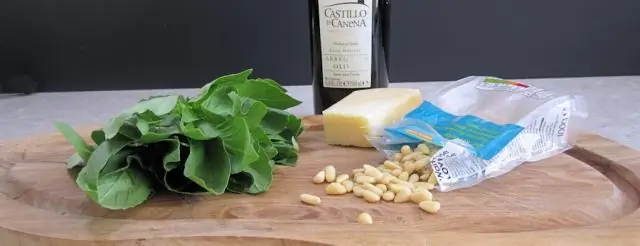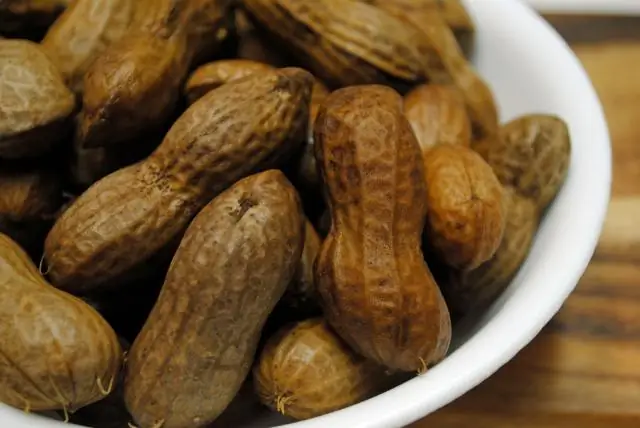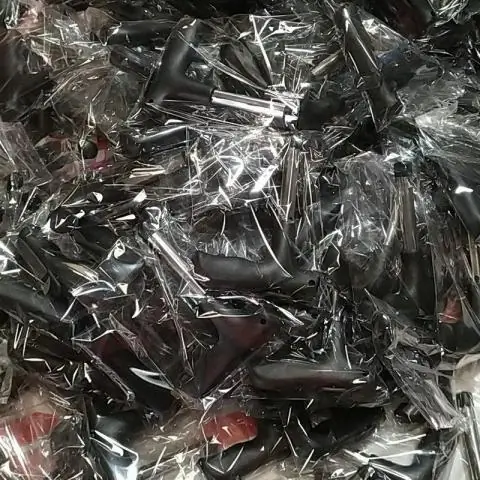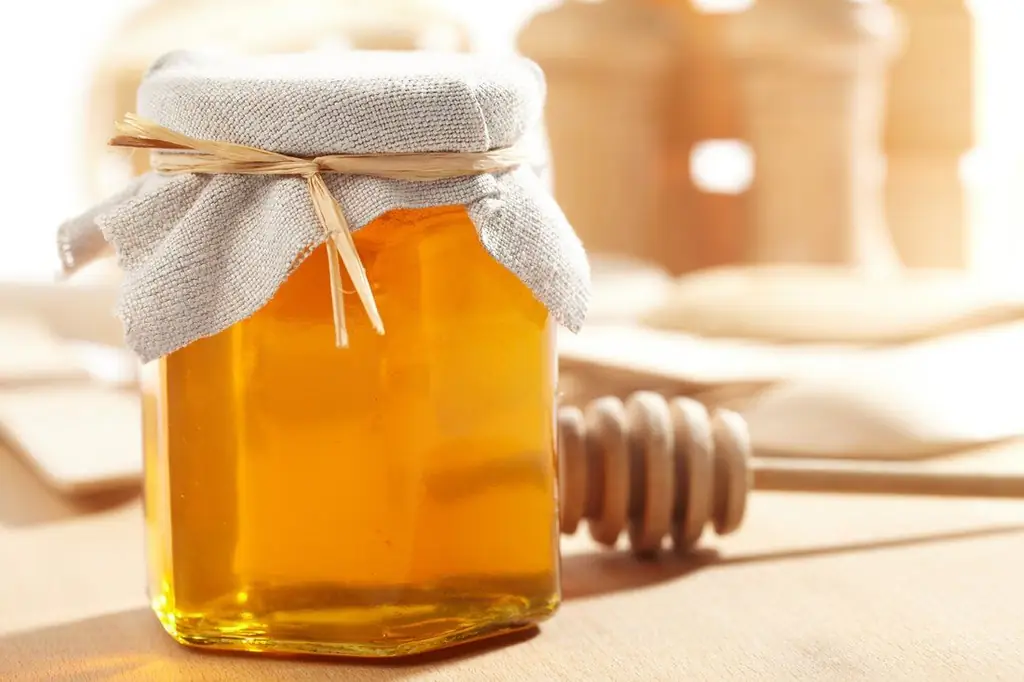
Table of contents:
- Author Bailey Albertson albertson@usefultipsdiy.com.
- Public 2023-12-17 12:53.
- Last modified 2025-01-23 12:41.
How to store honey at home: we will save useful properties for a long time

We have already written about the benefits of honey and how to choose it correctly, so as not to overpay to an unscrupulous seller for a low-quality product. But this wonderful product also needs special storage conditions, otherwise it will lose its beneficial properties.
Features of honey storage
If you want honey to be stored for a long time, keep in mind that it needs coolness. The optimum temperature is +5 - +10 degrees. It is very important to keep out of direct sunlight. In a private home, a basement may be a suitable place for long-term storage. If you live in an apartment, keep the honey in the refrigerator.
Honey retains its properties even at temperatures down to -20 degrees. So in winter you can store it on the balcony if you live in an apartment, or in the yard, in a barn if you live in a private house.
The optimum level of air humidity in the room where honey is stored is no more than 80%. Honey absorbs moisture well, which leads to a loss of its value and even acidification.
Do not keep honey near:
- paints;
- building materials;
- fuels and lubricants and solvents;
- fish;
- cheese;
- pickles;
- smoked products;
- pickled vegetables and other products and substances with strong pronounced odors. Honey absorbs odors very well, it will be spoiled.
Exposure to temperatures quickly destroys biologically active substances and vitamins in honey. Do not store it in warm rooms.
Storage utensils
Before storing honey, choose glass or aluminum dishes. Enamel or nickel plated containers are also suitable. The container must be absolutely clean and dry. Do not pour the product into a container with the remains of old honey, its film will cause fresh honey to ferment, which will spoil its taste.
Do not store honey in containers made of zinc, lead, copper or alloys of these metals. Under the influence of the acids contained in honey, chemical compounds can be formed that cause severe poisoning. Iron dishes are also not suitable: they are subject to corrosion, prolonged contact with acids in honey leads to changes in taste and smell.

Store honey under a tight lid
The most important thing in storage utensils is the tight lid. It can be glass, metal or plastic.
Very often wooden dishes are used to store honey - barrels and barrels. The most suitable wood species:
- beech;
- Birch;
- willow;
- cedar;
- Linden;
- plane tree;
- aspen;
- alder.
The moisture content of the wood should not exceed 16% (below the permissible moisture content of honey). Coniferous barrels are not suitable - honey absorbs tar and odor. In oak dishes, honey darkens.
The following are also suitable for storing honey:
- milk cans and stainless steel flasks;
- crockery made of aluminum or its alloys, sheet steel, tinned with food tin;
- cans with a special food grade coating inside;
- glasses or tubes made of aluminum foil coated with food varnish;
- casted or corrugated glasses made of pressed cardboard with moisture-proof impregnation;
- bags, cups and boxes from waxed paper, from parchment - for crystallized honey;
- any types of glass containers.
To prevent glass jars from cracking, insert wooden sticks into them when pouring in liquid honey and leave them until crystallization is complete.
Good, quality honey should crystallize around October if harvested in July (except for some varieties). If this does not happen, you most likely have a falsified product melted in a water bath. Do not forget that high temperatures have a detrimental effect on the beneficial qualities of honey. If you want to melt candied honey, take the required amount and place it in a water bath so that the product temperature does not exceed 40 degrees.
Features of honey in combs
We don't come across honey in combs often, but almost everyone who has tried it will agree: it has an unusual taste. This honey is the freshest, and there is no doubt about its quality. If you manage to purchase honey in combs, you are unlikely to plan for its long-term storage. Most likely it will be eaten in the very first days, and children will be especially interested in it. Nevertheless, we will give you some tips for storing this delicacy.

Honey comb can be stored for a very long time if the conditions are right
Honey in combs, just like ordinary honey, requires shade, coolness and low humidity. The optimum humidity is 60%: a lower one causes the appearance of mold or moths, and a higher one degrades the honeycomb. It is best to put honey in the refrigerator, after wrapping it in cling film, foil, parchment or waxed paper. Of course, products with strong strong odors should be removed.
When choosing honey, pay attention to the white combs - they are the safest. It is better not to take the gray ones, they are already old.
Video about storing honey at home
Honey is simply necessary in every home, which means that you need to know about its storage. After all, this is not only a tasty product, but also a cure for many diseases. If you have any questions on the topic, please ask them in the comments. Bon appetit, and health to you and your loved ones!
Recommended:
How To Store Pine Nuts At Home, Including Peeled Nuts

How to store different types of pine nuts correctly. How to choose them and how to keep all the benefits
How To Peel Or Shell Almonds And Store Them Properly At Home

Methods for cleaning almonds from shells and peels, storage rules at home. The nuances of storing peeled and unpeeled nuts
How To Clean Peanuts From Husks And Shells, How To Store Them At Home + Video And Photos

How to properly store peanuts at home and how to quickly peel them from husks and shells using simple methods
How To Open A Coconut At Home, Cut And Peel It, How To Store This Fruit Correctly + Video

Simple ways to open a nut and extract the pulp. Instructions with photos and videos. Storing the pulp of the coconut and applying the shell. Why is coconut and its juice useful?
How To Choose The Right Honey In A Store Or On The Market: Signs Of A Quality Product

Practical advice on choosing high quality honey. Traditional methods of determining a fake
